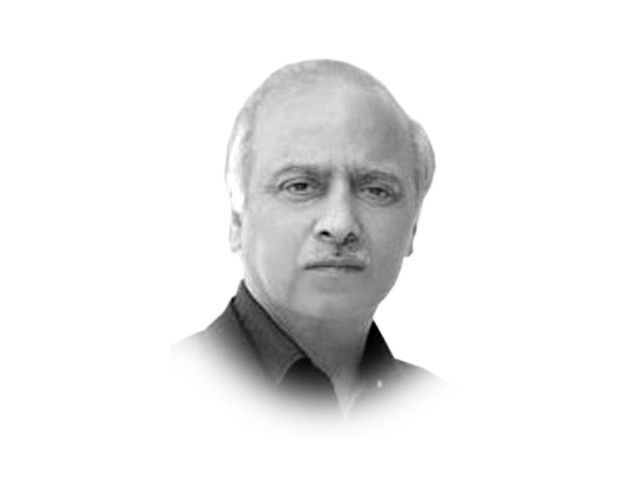Faith, accountability and rule of law
Faith may help in ensuring rule of law but it does not ensure law abidance by followers of a particular faith.

The writer is the Executive Director of the independent Centre for Research and Security Studies
Khan is a devout, practicing Muslim. He is candid and well meaning. His high-pitched voice, at times, also betrays his inner emotions of disgust and helplessness. But he apparently forgets, or willingly glosses over the basic fact that if “moral exhortations grounded in religion” were enough, the entire Muslim world would be an island of peace, development and equality.
Unfortunately, the human propensity to deviate from regulations for personal benefit knows no limits. Devout Christians, Muslims, Jews, Buddhists, etc. can be very nice human beings, but this alone does not guarantee that they — on their own — would be law abiding too. Most nations have devised ways to keep religion an individual matter, while law enforcement is treated as a secular matter and as a responsibility of the state.
Bo Li, a New York-based attorney, in his essay, “What Is Rule of Law,” draws a distinction between “rule by law” and “rule of law”. Under rule by law, the law is an instrument of the government and the government is above the law, meaning thereby, dictatorial governments and elected leaders who act arbitrarily to bend or circumvent the law: it is essentially, rule by a few persons.
“In contrast, under the rule ‘of’ law, no one is above the law, not even the government.” The core of “rule of law” is an autonomous, legal order. In this context, Bo Li dissects rule of law as: 1) a regulator of government power; 2) equality before law; and 3) procedural and formal justice.
If religion alone was the guiding principle for accountability, introspection, selfless service of contemporaries and adherence to the law, over 180 nations would not have bothered to come up with the UN’s Indicators for Rule of Law.
Let us consider a few of these factors, which the UN declared its indicators for judging a country: 1) public confidence in the police force and judicial system; 2) popular observance of the law; 3) strength and impartiality of the legal system; 4) the extent to which a well-functioning and accountable police force protects citizens and their property from crime and violence; 5) prevalence of petty crime, violent crimes and organised crime, foreign kidnappings, economic impact of crime on local businesses, prevalence of human trafficking, government commitment to combating human trafficking; 6) the existence of effective and democratic civilian state control of the police, military and internal security forces through the judicial, legislative and executive branches; 7) security of all sorts of private property rights; 8) the prevalence of tax evasion and insider trading, and size of the informal economy; 9) independence, effectiveness, predictability and integrity of the judiciary; 10) the independence of prosecutors from political direction and control; 11) the police, military and internal security services respect human rights and are held accountable for any abuses of power; 12) law-enforcement agencies are protected from political interference and have sufficient budgets to carry out their mandates.
These indicators suggest that law abidance is too precious to be left to mere exhortations embedded in faith, which don’t help societies. Faith may help in ensuring rule of law but it does not automatically ensure law abidance by followers of a particular faith. Rule of law requires a forceful, equitable, secular and indiscriminate application of laws. Passionate sermons have never helped, unfortunately.
Published in The Express Tribune, April 9th, 2014.
Like Opinion & Editorial on Facebook, follow @ETOpEd on Twitter to receive all updates on all our daily pieces.
















COMMENTS
Comments are moderated and generally will be posted if they are on-topic and not abusive.
For more information, please see our Comments FAQ